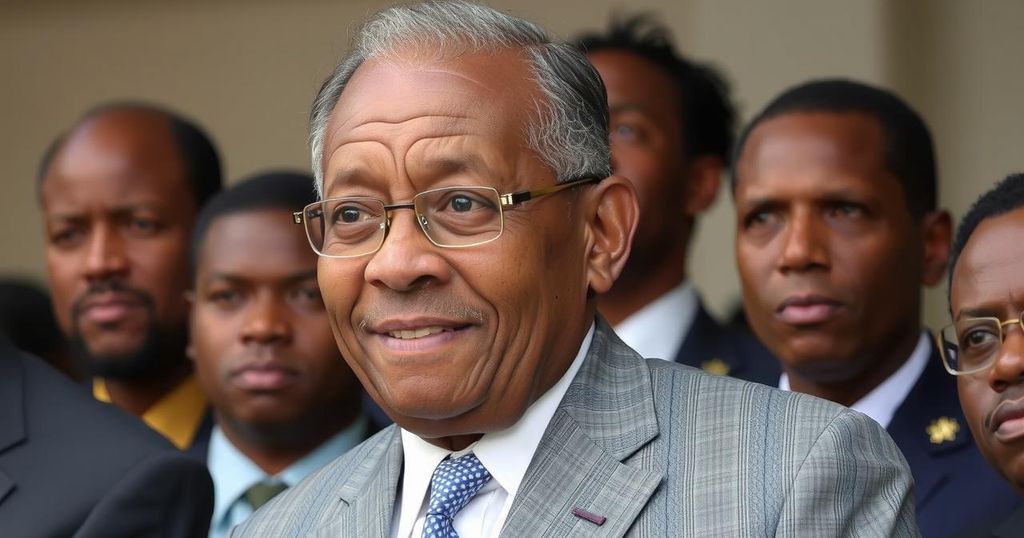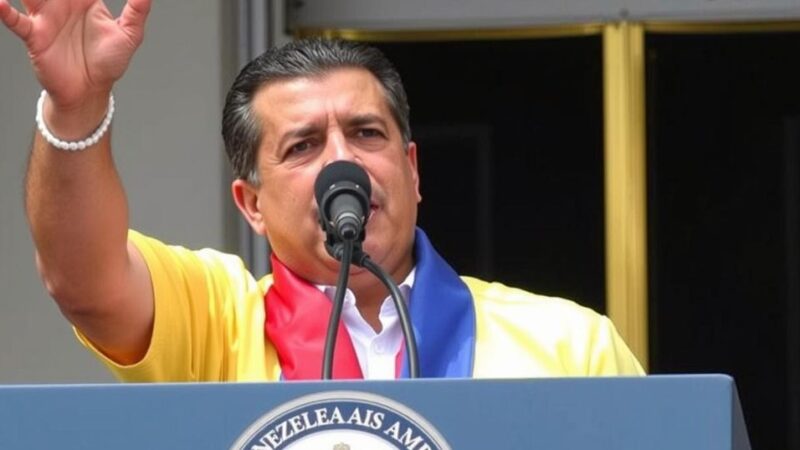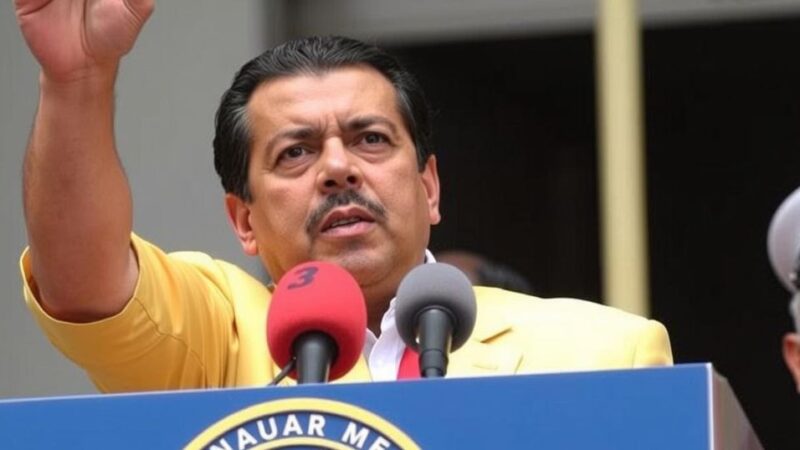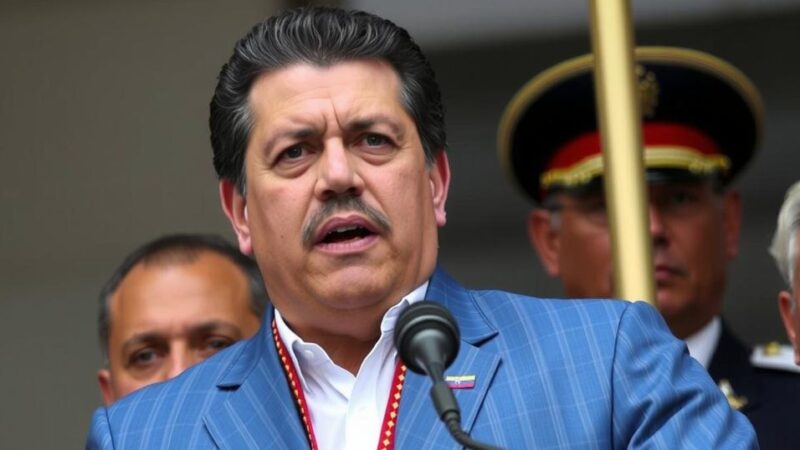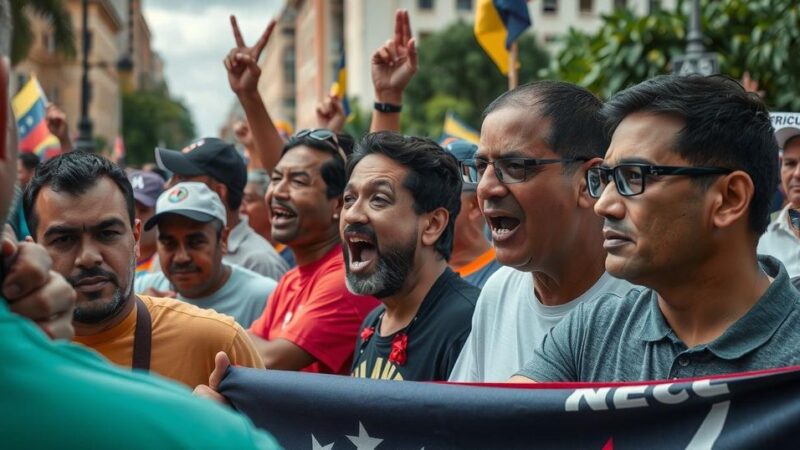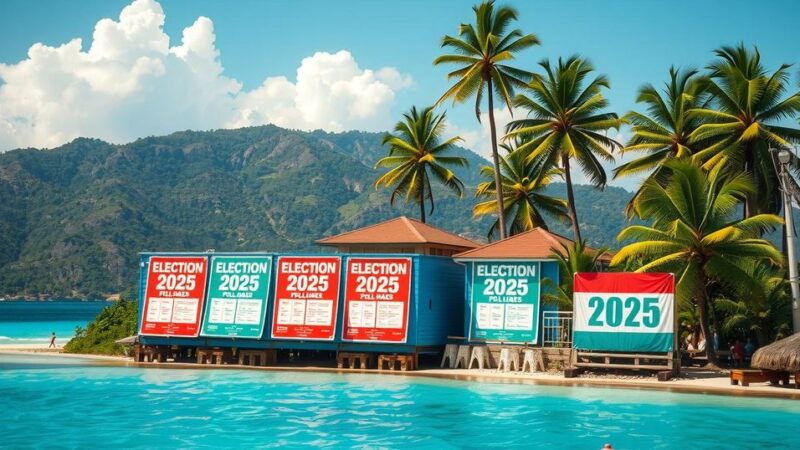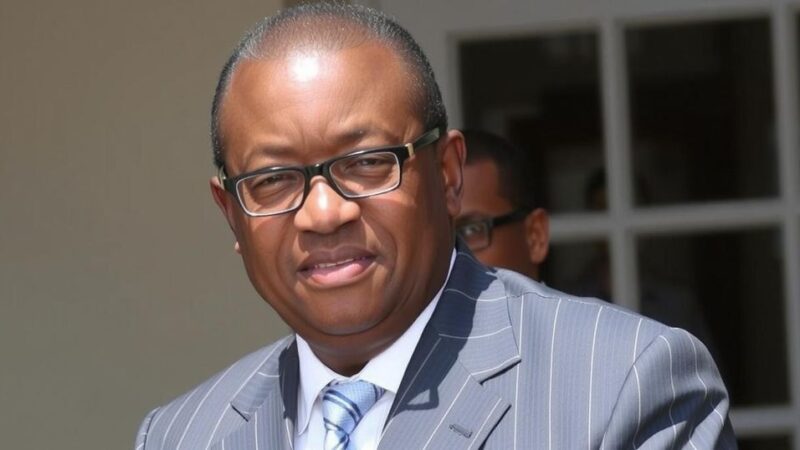Opposition leader Venâncio Mondlane has returned to Mozambique after an exile of nearly three months, declaring himself president. His claim follows allegations that the last election was stolen from him, as he received only 24 percent of the vote in October. His return is amid significant political unrest and government struggles with economic crises and insurgency, prompting regional intervention to address a growing political deadlock.
After a self-imposed exile of nearly three months, opposition leader Venâncio Mondlane has returned to Mozambique, declaring himself the rightful president of the nation. Mondlane was met with enthusiastic crowds upon his arrival after asserting that the last election was marred by corruption, resulting in a stolen victory. During the October elections, Daniel Chapo of the ruling Frelimo party secured 65 percent of the votes, while Mondlane received only 24 percent, as confirmed by the highest court of Mozambique. Despite the official count, independent observers have reported electoral irregularities, prompting Mondlane to rally his supporters against the perceived injustices, which have occasionally led to violent protests with significant loss of life.
Mondlane’s return comes at a critical juncture for Mozambique, as the government grapples with numerous issues, including housing and debt crises, alongside an ongoing insurgency that has ties to the Islamic State. The political unrest has resulted in regional leaders intervening to mediate the situation, which threatens to escalate and inflict further economic harm on the mineral-rich nation of 33 million people. In the wake of these developments, Mondlane aims to reclaim his political standing and challenge the legitimacy of the upcoming presidential inauguration scheduled for Wednesday.
Venâncio Mondlane is a prominent opposition figure in Mozambique who was previously considered a contender for the presidency in the October elections. The dominant ruling party, Frelimo, has governed the country for decades. Following the recent electoral results, which Mondlane claims were fraudulent, his return has been marked by significant public support as well as political tension. The political landscape in Mozambique is further complicated by socioeconomic challenges, economic instability, and an insurgency threatening peace in the country.
In conclusion, Venâncio Mondlane’s return to Mozambique symbolizes a significant moment in the nation’s political landscape, echoing widespread discontent with the electoral process and governmental transparency. The upcoming inauguration of a new president amidst ongoing political and social challenges poses a crucial test for stability in Mozambique during a time when the country is also battling insurgency and economic issues. Mondlane’s assertive declaration of his presidential claim underscores the turbulence that characterizes the current political climate.
Original Source: www.nytimes.com

